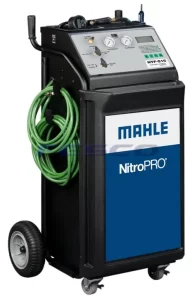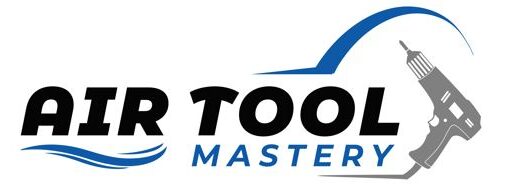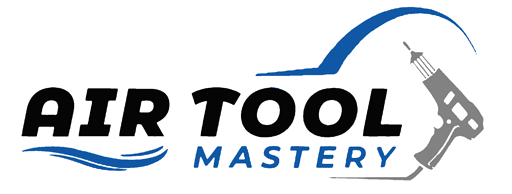Nitrogen tire inflators are devices designed to fill tires with nitrogen gas as an alternative to the more commonly used compressed air. These unique inflators are highly relevant due to the growing awareness of the benefits of nitrogen tire inflation, including improved fuel efficiency, longer tire lifespan, and more consistent tire pressure.
How Nitrogen Tire Inflators Work

Why do people put nitrogen in tyres?
1. Improved Fuel Efficiency
Maintaining the correct tire pressure is crucial for fuel efficiency. With nitrogen inflation, there is less pressure loss over time due to its larger molecules and dryness. This translates into improved fuel efficiency and cost savings in the long run.
2. Reduced Tire Wear
Properly inflated tires experience less wear and tear, extending their lifespan. Nitrogen inflation maintains stable tire pressure, reducing the likelihood of under-inflated or over-inflated tires that can cause uneven tire wear.
3. Enhanced Safety
Under-inflated tires can be a safety hazard as they are more prone to blowouts and overheating. Nitrogen tire inflation reduces the risk of these issues, providing a safer driving experience because nitrogen is inert.
4. Environmentally Friendly
Again, nitrogen is an inert gas, meaning it does not react with other substances or contribute to chemical reactions in the tire. This makes it a more environmentally friendly option compared to compressed air, which can contain moisture and other contaminants that can cause corrosion and lead to tire failure.
5. Cost-effective
While there is a cost associated with using nitrogen inflators, the long-term benefits far outweigh the initial investment. Improved fuel efficiency, reduced tire wear, and enhanced safety all result in cost savings over time. Additionally, with less pressure loss, tires do not need to be refilled as frequently, saving time and money.
6. Versatility
Nitrogen inflation is suitable for all types of vehicles, from passenger cars to heavy-duty trucks and even aircraft tires. This versatility makes it a convenient option for any vehicle owner.
7. Easy Maintenance
Maintaining proper tire pressure with nitrogen inflators is easy and hassle-free. As mentioned earlier, tires do not need to be refilled as frequently, and there is less chance of pressure loss due to the nature of nitrogen gas. This means less time spent at the gas station filling up tires and more time on the road.
Should I inflate my tires with nitrogen?
Inflating your tires with nitrogen instead of regular air has been a topic of debate among vehicle owners and mechanics alike. Nitrogen molecules are larger than oxygen molecules, which means they are less likely to seep through the walls of tires, potentially maintaining tire pressure more consistently over time. This could lead to improved fuel efficiency, reduced tire wear, and possibly a smoother driving experience.
It’s essential to weigh these benefits against the cost and availability of nitrogen inflation at automotive service centers. While some high-performance vehicles and aircraft have long used nitrogen to maintain tire pressure more reliably, the overall advantage for everyday passenger vehicles remains a balanced consideration.
Is nitrogen good for car tyres?
The effectiveness of nitrogen in car tyres largely depends on a vehicle’s usage patterns and the owner’s priorities. For drivers who frequently monitor and maintain their tyre pressure, the switch to nitrogen might offer marginal benefits. However, for those less attentive to maintenance or who experience significant temperature fluctuations that could affect tyre pressure, nitrogen can provide a bit more stability in tyre performance.
Safety is another factor to consider. Properly inflated tyres, whether with nitrogen or regular air, are crucial for optimal vehicle handling and braking efficiency. Nitrogen’s ability to maintain pressure for a longer period might contribute to a consistent safety margin, especially in challenging driving conditions.
How long do nitrogen tires last?
The lifespan of nitrogen-filled tires can be influenced by several factors including driving habits, tire quality, and road conditions. Using nitrogen in tires does not directly extend their overall lifespan. Instead, it helps in maintaining optimal tire pressure for a slightly longer period compared to air, which can indirectly contribute to the tire’s health by reducing uneven wear and tear. Typically, nitrogen lasts between 3 and 5 months in the tires before levels reduce to considerable levels. After 3 months, you should check your tire pressure and refill as appropriate.
How to tell if tires are filled with nitrogen?
One way to determine if your tyres are filled with nitrogen is to look for a green cap or a green valve stem on your tyres. This green indicator is a common practice among tyre service providers to signify that a tyre has been filled with nitrogen. However, not all providers use this system, so it is not a guaranteed indicator. Another method is to check service records or ask directly at the service centre where the tyres were last filled. If there’s uncertainty, a tyre service professional can check the tyre’s air composition with a nitrogen purity tester. This device measures the percentage of nitrogen within the tyre, providing a clear indication of whether nitrogen or regular air fills the tyre.
What cars use nitrogen in tires?
Many high-performance and luxury vehicles come with nitrogen-filled tires from the manufacturer due to the stability it provides in maintaining tire pressure. This stability is particularly important for vehicles that demand the utmost precision and performance, such as sports cars, where even minor fluctuations in tire pressure can affect handling and stability.
Commercial airlines and certain sectors of the motor racing industry have long used nitrogen in their tires for similar reasons. However, it’s not exclusive to high-end vehicles; many everyday consumer vehicles can also benefit from nitrogen tire inflation, provided the service is available and deemed cost-effective by the owner.
Is nitrogen better than compressed air for tyres?
The debate over whether nitrogen is superior to compressed air for tyres hinges on several key benefits attributed to nitrogen. Firstly, nitrogen molecules are larger than those of oxygen, which makes them less prone to seeping out through the tyre rubber, thereby maintaining tyre pressure for longer periods. This can lead to more consistent tyre performance, better fuel efficiency, and extended tyre life since properly inflated tyres experience less wear and tear.
Nitrogen is less reactive than oxygen and contains no moisture, reducing the risk of internal tyre corrosion and degradation over time. However, it’s important to note that while these benefits are significant, the cost and availability of nitrogen inflation services can be prohibitive for some vehicle owners.
What are the disadvantages of nitrogen-filled tires?
While there are many benefits to using nitrogen tire inflation, it is essential to mention some of the potential drawbacks as well.
1. Initial Cost
The initial cost of using nitrogen inflators may be a deterrent for some vehicle owners. While the long-term savings make it worth the investment, not everyone may see it this way.
2. Limited Availability
Nitrogen tire inflators are not as readily available as traditional compressed air pumps, which can be found at most gas stations and automotive shops. This may make it more challenging for some vehicle owners to access nitrogen inflation services.
3. Special Equipment is required.
In order to fill tires with nitrogen, specialized equipment is needed, such as a nitrogen generator or a nitrogen cartridge. This equipment can be costly and may not be readily available in all locations.
4. No Significant Difference for Regular Vehicles
While nitrogen inflation may provide benefits for high-performance or heavy-duty vehicles, there is no significant difference in performance for regular passenger cars. This means that the cost of using nitrogen inflators may not be justified for some vehicle owners.
Conclusion
While nitrogen tire inflation may have its benefits for certain types of vehicles, it may not be necessary or cost-effective for others. It is important to carefully consider factors such as the type of vehicle, frequency of use, and budget before investing in a nitrogen tire inflator. As with any purchase, doing research and consulting with professionals can help you make an informed decision on whether or not nitrogen inflation is right for your vehicle. So, it is always recommended to weigh the pros and cons and make the best decision for your specific needs.
Remember, properly inflated tires, regardless of whether they are filled with air or nitrogen, are crucial for the safety and performance of your vehicle. Regular tire maintenance and checking tire pressure is key to ensuring smooth driving and prolonging the lifespan of your tires. Thank you for reading.

